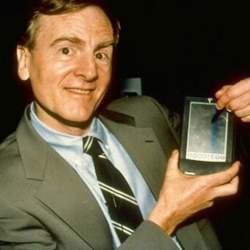It’s a young person’s game. Nowhere has this been truer than Silicon Valley.
Silicon Valley has been the birthplace of many of the new generation of digitally native, tech and content-led brands. The best of which have sent shockwaves through established sectors and markets, challenging conventions and long-established business models.
Silicon Valley is a place of dreams, dreams that regularly seem to feature unicorns. It also appears to be the place where engineers and marketers probably have less reverence for age than anywhere else in the world. I recently heard one marketer talk about Amazon as an ‘ancient’ brand. Now Amazon was launched in 1994, so it is coming up to be 30. However, if that’s ancient, what are Vodafone (1984), Boeing (1916), Kellogg’s (1906), Ford (1903) and Coco-Cola (1892)? It must mean Bass is pre-historic, founded, as it was, in 1777.


If there are questions about the age of brands, many also question the notion that age and experience equates to wisdom, especially when it comes to business management and marketing. There is a feeling that the new digital, social media world is a young person’s game. One where the future is being created. These new brands and their marketers believe they are doing things better and differently. And, what have the older brands and older marketers got to tell or teach them?
Underlying this is a (semi-conscious) belief that much of the old wisdom doesn’t hold anymore; there are new rules of marketing. It’s not marketing, it’s performance marketing. It’s a world that the older generation of marketers haven’t truly embraced (mastered and grown up in) and so don’t have ‘wisdom’ about it.
For many this is because brands are seeking out young consumers living in a global economy that has transitioned from mechanical technologies to digital ones and that these new marketers not only have more relevant skill sets but come with more “experience” too.
“Adult supervision”
This notion may have been further strengthened by the infamous Sculley and Apple affair. Though given it started in 1983, it may also be ancient history, so in case you are too young to recall the story, it runs like this: In 1983 Steve Jobs approached John Sculley, then CEO of PepsiCo, with a pitch; “Do you want to sell sugared water for the rest of your life? Or do you want to come with me and change the world?”
Rather tellingly, the notion was dubbed as “adult supervision”— an upstart company bringing in a veteran CEO to oversee its young, inexperienced founders.
Following a positive start, Jobs and Sculley were soon clashing over everything from the fate of the Macintosh division to how much to focus on education. It ultimately led to Jobs attempting a boardroom coup against Sculley in 1985. It failed and Jobs was effectively banished, resigning later that year.
Sculley actually lasted 8 years in the role and had some notable successes. However, given deteriorating performance, the even worse subsequent performance, and then the successful return of Jobs the period and even the approach isn’t positively viewed, which simply reinforced the notion that those in the Valley could do it for themselves. (Interestingly though, Jobs was 42 when he returned to Apple — only 2 years younger than Sculley had been when he took the job).
However, it seems that things might be changing. Digital technologies are decreasingly the domain of the young and increasingly the domain of everyone — Millennials are now in their 40s. Both marketers and customers of these new generation of brands are getting older.
There is some realisation that the fundamentals of marketing haven’t really changed. And that the more tactical, executional side is epitomised by performance marketing, where marketers focus their attention on the shiny new objects, channels, tools, and ways of doing things works well and quickly, but only up to a certain point. And to build long-term brands, marketers need to embrace the concept of positioning, targeting, segmentation and translate these into richer marketing and brand-building strategies.
And so maybe, just maybe, there is some recognition that the old wisdom still holds. Silicon Valley marketers may look for different ways of realising it but realise they must.
Featured image: Mike Von / Unsplash































